Hypothyroidism And It’s Management: All You Need To Know
Despite advancements in the medical field, certain diseases like hypothyroidism are not known to all. You would be surprised to know that 1 out of 8 women faces the issue of thyroid once in their life. The thyroid is often linked to weight gain. However, there are several other symptoms that you might not know about. Read in to find All you need to know about hypothyroidism and it’s management.
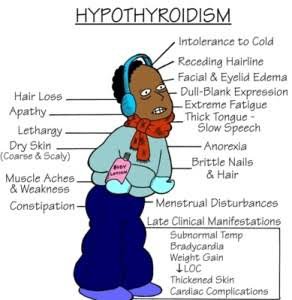
Hypothyroidism And Its Management
Feeling lethargic and can’t get through the day without a nap? Frustrated with constipation all the time? You might be suffering from hypothyroidism! Firstly, it’s important to know about the disease before we talk about its management. So keep reading to know more about what is hypothyroidism?
What is hypothyroidism?
The thyroid is a small, butterfly-shaped gland that sits at the front of your neck. It releases hormones to help your body regulate and use energy. Hypothyroidism occurs when your body doesn’t produce enough thyroid hormones.
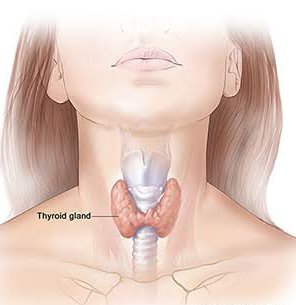
The Thyroid is responsible for providing energy to nearly every organ in your body! It controls functions like heart rate, body temperature, digestion, and all aspects of metabolism. Without the right amount of thyroid hormones, your body’s natural functions begin to slow down. So much for a butterfly-shaped organ, isn’t it?!
How to diagnose hypothyroidism?
When your thyroid goes on a ride, it results in signals and effects that can easily be ignored, misdiagnosed, or mistreated. They can also be written off as effects of aging and stress rather than a thyroid disorder! Therefore it’s critical to get a perfect diagnosis.
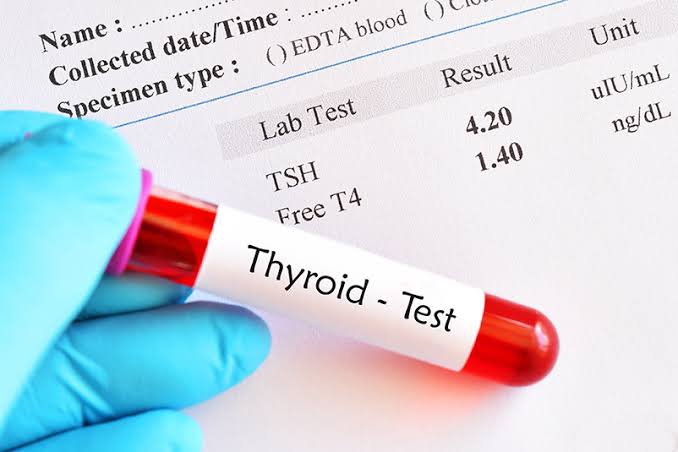
Blood tests have proven to be the most reliable way to diagnose hypothyroidism. Firstly, the Thyroid-stimulating hormone (TSH) test measures how much TSH your pituitary gland is creating:
- If your thyroid isn’t producing enough hormones, the pituitary gland will boost TSH to increase thyroid hormone production.
- Hypothyroidism is when your TSH levels are high, as your body is trying to stimulate more thyroid hormone activity.
- Hyperthyroidism is when your TSH levels are low, as your body is trying to stop excessive thyroid hormone production.
Secondly, a thyroxine(T4) level test is also useful in diagnosing hypothyroidism. The thyroid produces the T4 hormone. So T4 and TSH tests together help evaluate thyroid function.
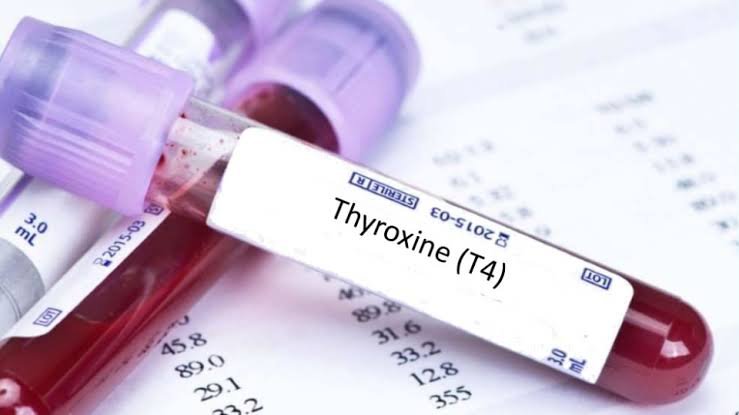
Typically, if you have a low level of T4 along with a high level of TSH, you have hypothyroidism. However, a doctor’s consultation will give a clear idea about the condition.
What are the symptoms of hypothyroidism?
Oh, this list is a long one! It’s quite tricky as the symptoms are quite commonly felt and can often be ignored by an individual. However, it’s important to keep a check on your body’s behavior.
Early symptoms can include weight gain and fatigue. Both can increase as you age, regardless of your thyroid’s health. Also, you may not realize that these changes are related to your thyroid until more symptoms appear. Here’s a list of the more common symptoms of hypothyroidism:
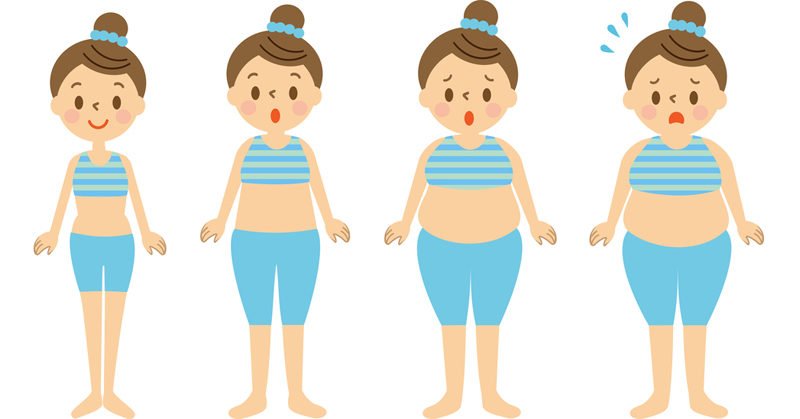
- fatigue
- depression
- constipation
- feeling cold
- dry skin
- weight gain
- muscle weakness
- decreased sweating
- slowed heart rate
- elevated blood cholesterol
- pain and stiffness in your joints
- dry, thinning hair
- impaired memory
- fertility difficulties or menstrual changes
- muscle stiffness, aches, and tenderness
- hoarseness
- puffy, sensitive face
How to manage hypothyroidism?
If you’ve recently been diagnosed with the condition, it’s important to know that treatment is considered simple, safe, and effective. Most treatments rely on supplementing the low hormone levels with artificial varieties. These hormones will replace what your body isn’t producing on its own and help return your body’s functions to normal. However, certain pointers can aid in effectively managing hypothyroidism.
1) Eating a balanced diet
Consuming too few or too many nutrients directly affects your thyroid function. So making a healthy and specific diet key to balancing your thyroid.
Firstly, your thyroid needs adequate amounts of iodine to fully function. You don’t need to take an iodine supplement for that to happen. A balanced diet of whole grains, beans, lean proteins, and colorful fruits and vegetables should provide enough iodine.

Secondly, soybeans and soy products also contain agents that hinder the absorption of thyroid hormones. This can affect your thyroid function especially if you’re iodine deficient. So consult your doctor to figure out what your body needs to set your diet accordingly. It’s recommended to avoid eating or drinking soy-based foods for at least two hours before and after you take your medication.

Lastly, here’s a not-so-known tip! Cruciferous vegetables, such as kale, cabbage, broccoli, and cauliflower, contain substances that can suppress thyroid hormone production. But cooking or steaming these vegetables usually destroys the substance. So be sure to get friendly with your stovetop if you love these veggies!
2) Gear up the metabolism
Diet and exercise top the list of treatments for every disease and good reason! Hypothyroidism is no exception to this either! So make sure to incorporate aerobic exercises, such as running, cycling, and swimming into your daily routine. Thus will help to keep your metabolism at an optimal level.

Furthermore, exercise can help spark the secretion of thyroid hormones in your body! This can combat hypothyroidism symptoms such as weight gain, depression, and low energy levels.
One can also deal with anxiety and depression due to hypothyroidism by actively practicing yoga and meditation. This helps clear the mind and cleanse the body which ultimately makes you feel good!
3) Toxin control

Toxins and chemicals from everyday products can also significantly affect your thyroid. Studies have shown that pesticides can affect the production of hormones and increase your risk of thyroid problems. So pay attention to your environment and the beauty products you use. Also, be sure to talk to your doctor if you think daily toxins could be adversely affecting your thyroid.
4) Take your medication!
Hypothyroidism is a lifelong condition. However, for many people, the medication reduces or alleviates symptoms. So taking the medication regularly and religiously is the best you can do!

Hypothyroidism is best treated by using levothyroxine (Levothroid, Levoxyl). This synthetic version of the T4 hormone copies the action of the thyroid hormone your body would normally produce. The medication is designed to return adequate levels of thyroid hormone to your blood.
But it’s unlikely you’ll continue to take the same dose. To make sure your medication is still working properly, your doctor should test your TSH levels yearly.
5) Time your supplements

If you are taking iron or calcium supplements, make sure you time these with your thyroid medication. You will have to take those separately from your thyroid medication. That’s because calcium and iron can bind to the lab-made hormone and prevent your body from absorbing it! I’m sure you wouldn’t want your medication to not work, right?! So be smart and time your supplements accordingly to get the full benefit of them.
To conclude, balancing your thyroid doesn’t happen overnight, but you can see how your body reacts to extra doses of self-care immediately. Your body is extremely resilient,. So a little help and attention will get you on the fast track to a fuller, healthier life.
So it’s important to pay attention to changes your body goes through during your life span. If you notice a significant difference in how you feel or how your body is responding, talk to your doctor to see if a thyroid problem may be affecting you.
Hope you liked the article and gained some more knowledge on Thyroid! Go get your test done if you are facing such issues! Do share this with your friends and relatives who might be going through the same problem.
Till then, stay healthy, stay fit, and love your body!

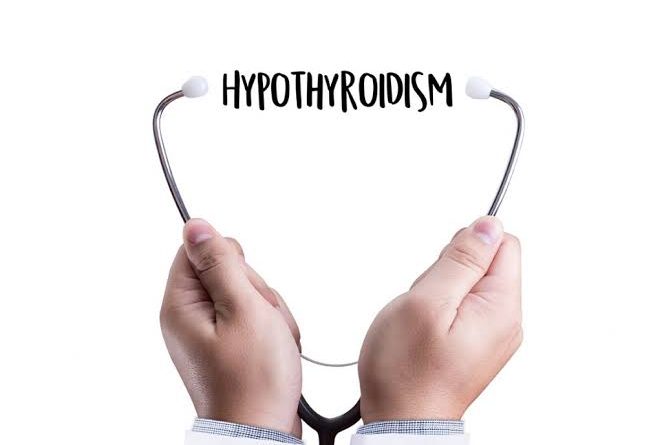



Pingback: Everything You Want To Know About Hepatitis C - WarPaint Journal